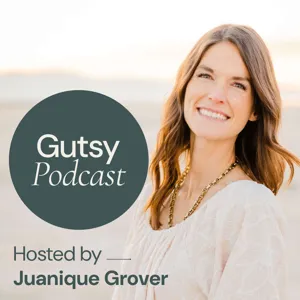Reducing Toxins to Detoxify Your Life with Greer McGuinness: Episode Rerun

Explore " chemical exposure" with insightful episodes like "Reducing Toxins to Detoxify Your Life with Greer McGuinness: Episode Rerun", "The Truth About Parasites and Your Health", "VSO Spotlight #2 - Featuring Jane Babcock - Newly added VA Health Benefits", "The Health Pulse S2E4: Healthier Living Through Epigenetics Analysis" and "Why what's in your makeup is an environmental justice issue" from podcasts like ""The Root Cause Medicine Podcast", "Gutsy Health | Nutrition and Medicine", "Sisters-in-Service", "Analytics Exchange: Podcasts from SAS" and "Degrees: Real talk about planet-saving careers"" and more!


Show Summary:
"Parasites can overgrow due to an unhealthy diet, chemical exposure, and an unnatural lifestyle, leading to illness. Parasite protocols can help decrease their numbers drastically and restore balance in the body.”
Are you struggling with unexplained health issues and a feeling that something isn't quite right with your body? Then, it's time to consider a possible source you may have overlooked - parasites.
These insidious invaders can enter the body unnoticed and wreak havoc on our health, leading to a range of debilitating symptoms that may seem unrelated. However, the damage caused by parasites is very real and can have long-lasting effects if not appropriately addressed.
Thankfully, armed with the proper knowledge and tools, we can reduce their numbers, restore balance to the body, and potentially feel better than ever.
Join us as we explore the fascinating world of parasites, reveal the latest insights, and learn how parasites impact your health. Listen to Episode 59 of the Gutsy Health Podcast!
Exceptional Highlights:
Show Highlights:
According to the terrain theory, our modern lifestyle can be a perfect breeding ground for parasites.
Juanique Roney 06:08
Anyone can contract parasites in various ways, including exposure to contaminated water, soil, or food.
Juanique Roney 09:33
Parasites can be grouped into three types: ticks and lice, roundworms and flatworms, and protozoan parasites.
Juanique Roney 20:55
Digestive issues are a common sign of hosting parasites, but symptoms can also include anxiety, brain fog, lethargy, eczema, teeth grinding, anemia, and hormonal imbalances.
Juanique Roney 27:31
Important Links:

On this episode, Greg is joined by Dr. Melissa Strong, founder and lead data scientist for IndiOmics. Her background is in molecular biology and epigenetics—or how our environment can affect our gene expression. The idea behind IndiOmics started when Dr. Strong was pregnant with her son and interested in better understanding chemical exposure in utero. The organization’s mission is to educate the public about common chemicals that have the ability to affect us on a cellular level and what we can do to avoid or prevent exposure. Much of its work focuses on endocrine-disrupting chemicals (EDCs). Participants receive a kit, provide a sample from home and ship the kit to the IndiOmics laboratory. When the results are ready, they can login for a personalized look at what they’ve been exposed to, how it’s affecting them on a molecular level and steps they can take to avoid or prevent additional exposure. For example, they may be able to cut down on EDC exposure by not heating or microwaving plastics. Dr. Strong explains that our gene expression is not set in stone, and our environment and behaviors play a significant role in determining our health. Particularly with EDCs, science has demonstrated the toxicity of even very low levels of chemical exposure. To learn more about what you can do to reduce your exposure to harmful chemicals, even if you don’t know your levels, Dr. Strong recommends visiting the Environmental Working Group’s website, www.ewg.org, and referencing the IndiOmics Healthy Living Pocket Guide at www.indiomics.org/pocket-guide. Looking to the future, Dr. Strong is encouraged by younger generations’ awareness around this issue and believes that consumer demand will drive action on the part of manufacturers and regulators alike to further reduce the use of harmful chemicals in consumer products. She also believes that blood tests on endocrine exposures will eventually become a part of routine medical care, empowering more people to understand their exposure levels and take steps to improve their health.
All presentations represent the opinions of the presenter and do not represent the position or the opinion of SAS.




Stay up to date
For any inquiries, please email us at hello@podcastworld.io